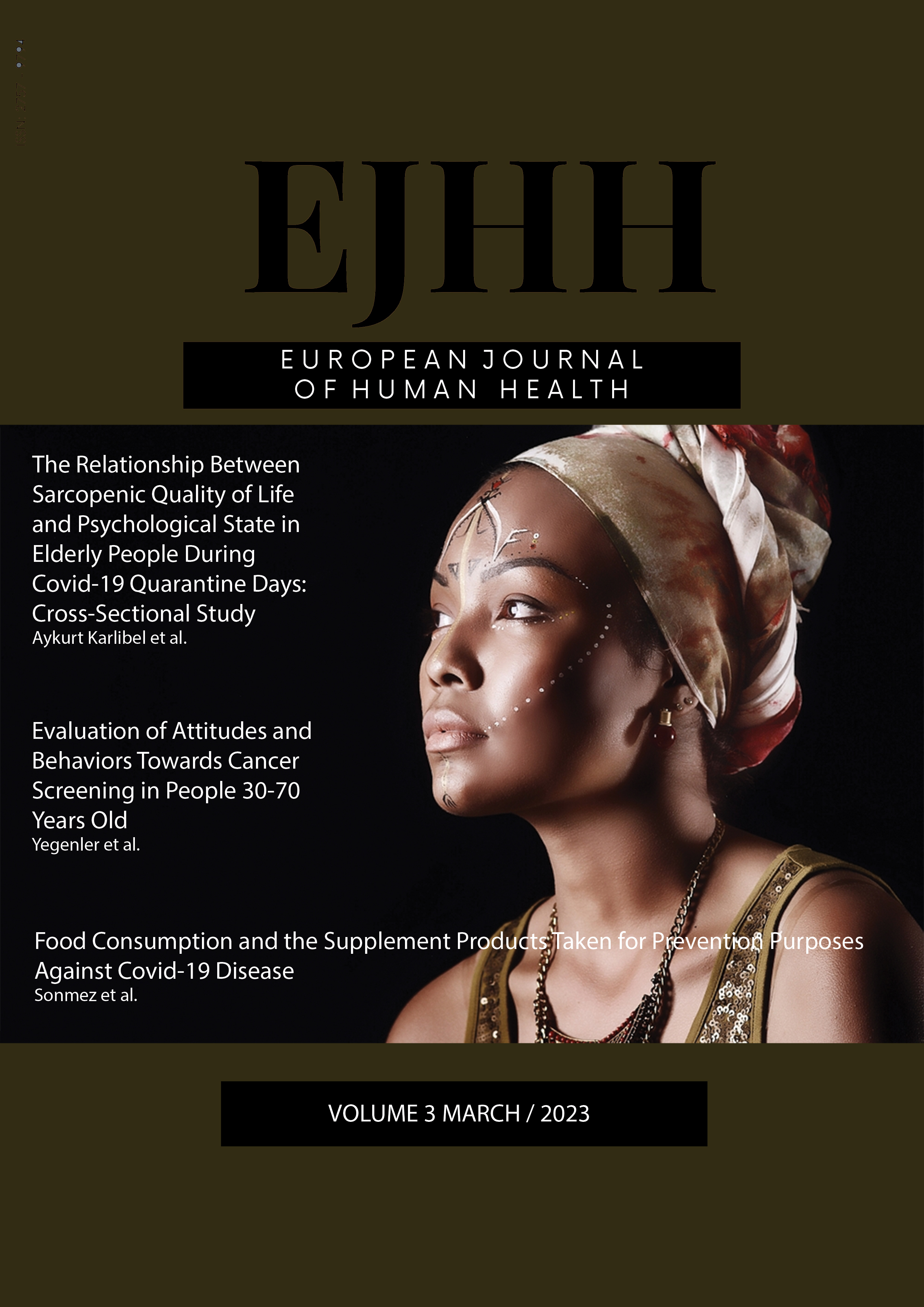COVID-19 quarantine days’ effect on sarcopenic quality of life and psychological status among elderly people
Author :
Abstract
Keywords
Abstract
Aim: Social isolation and quarantine practices are recommended to control SARS-Cov-2. During this period, elderly individuals’ physical mobility is significantly restricted, which may predispose them to sarcopenia. We aimed to investigate such pandemic restrictions’ effects on elderly individuals’ sarcopenic quality of life, anxiety and depression.
Methods: The open-ended questionnaire study gained access to volunteers online and remotely. The ‘Sarcopenic Quality of Life Scale’, ‘Geriatric Depression Scale-Short Form’ and ‘Geriatric Anxiety Scale’ were used. Data were evaluated prospectively and cross-sectionally.
Results: In total, 139 elderly volunteers (≥ 65age; 60% female) were included in the study. Compared to before the pandemic, respondents reports decreases in: arm strength (48.6%), leg strength (65.5%), muscle mass (55.7%), energy (67.9%), physical capacity and flexibility (64.3%), walking frequency (77.5%), walking time (79.6%), walking distance (82.4%), walking speed (88.7%) and step length (83.8%). Among coronavirus disease survivors, sarcopenic quality of life was significantly lower than those not exposed to the coronavirus disease, while depression and anxiety were higher. The ‘Sarcopenic Quality of Life Scale’ items 3 and 6 alone were significantly better among respondents who exercised. A negative correlation was found between sarcopenic quality of life and anxiety and depression.
Conclusion: Our study showed decreased physical functions and sarcopenic quality of life among elderly individuals whose movements were restricted to their homes. This decline was more pronounced among coronavirus disease survivors and patients who had not exercised at home during this period, and it was found to be associated with anxiety and depression.





